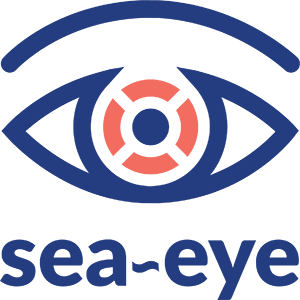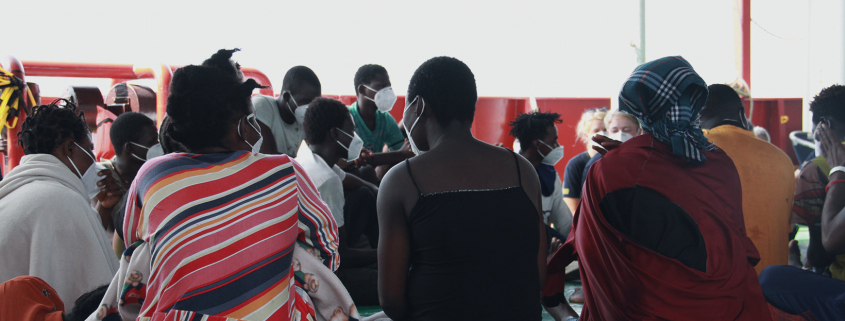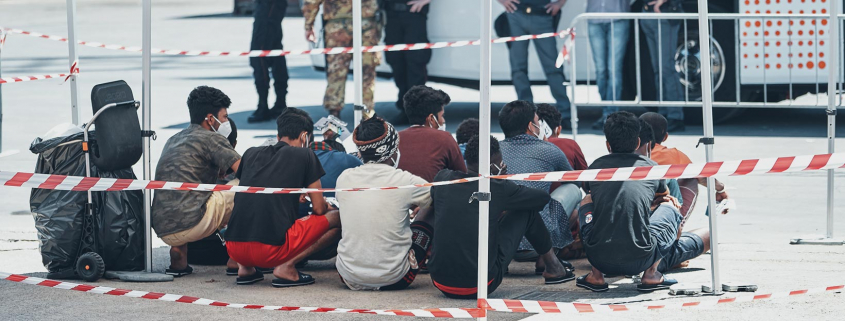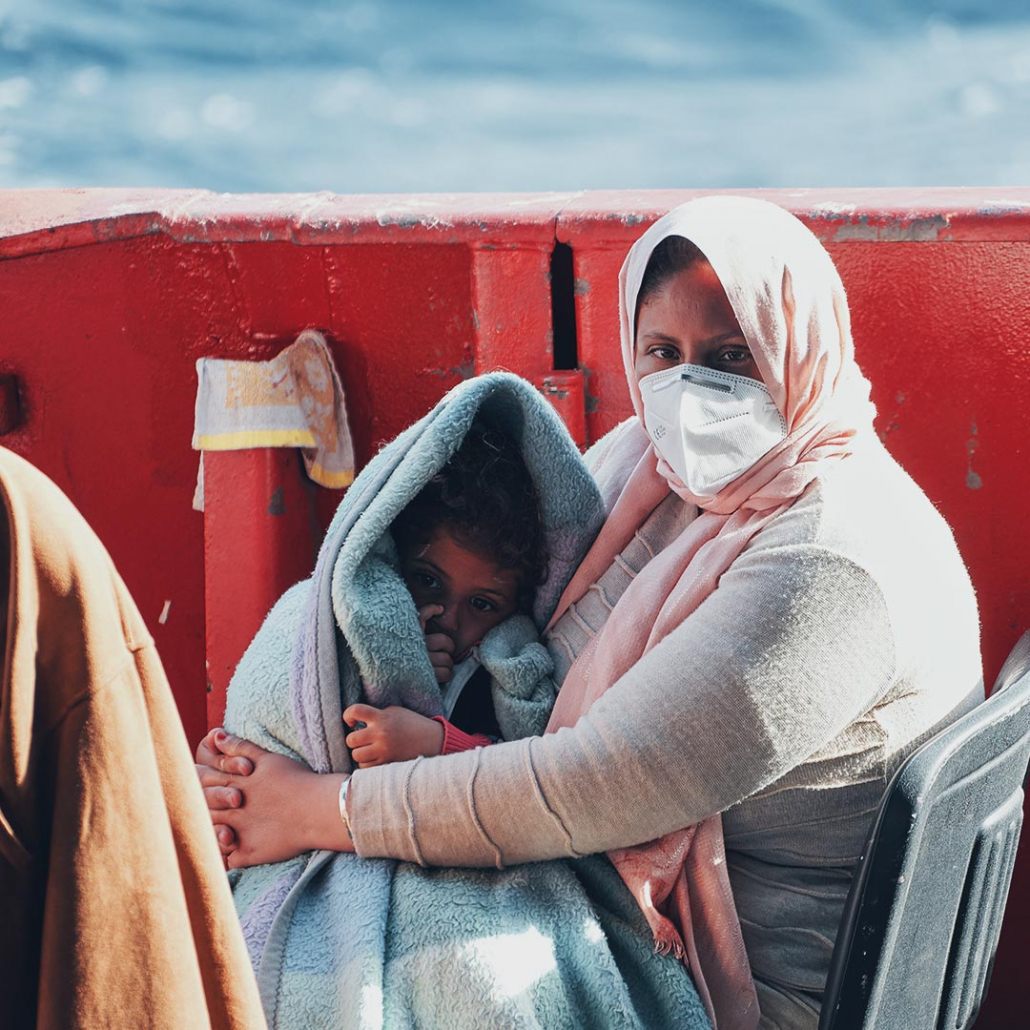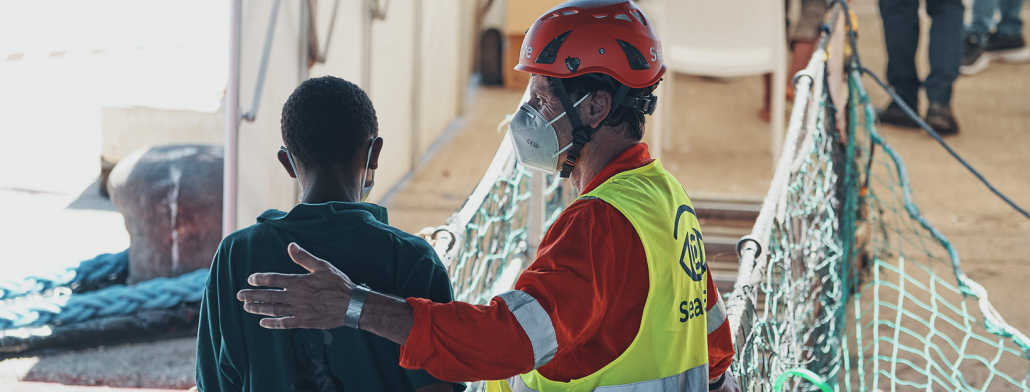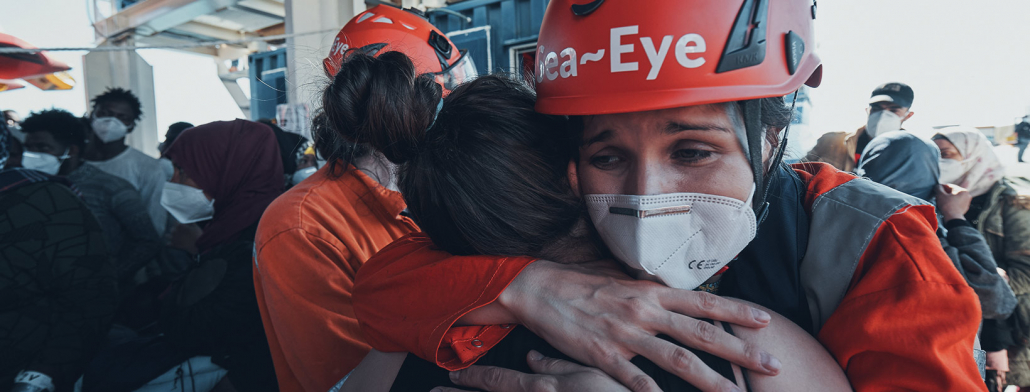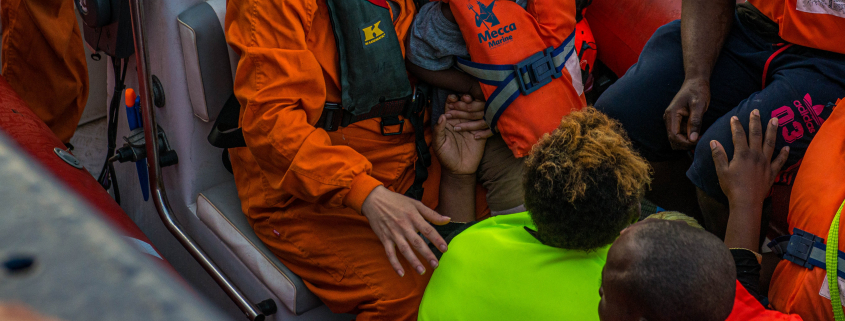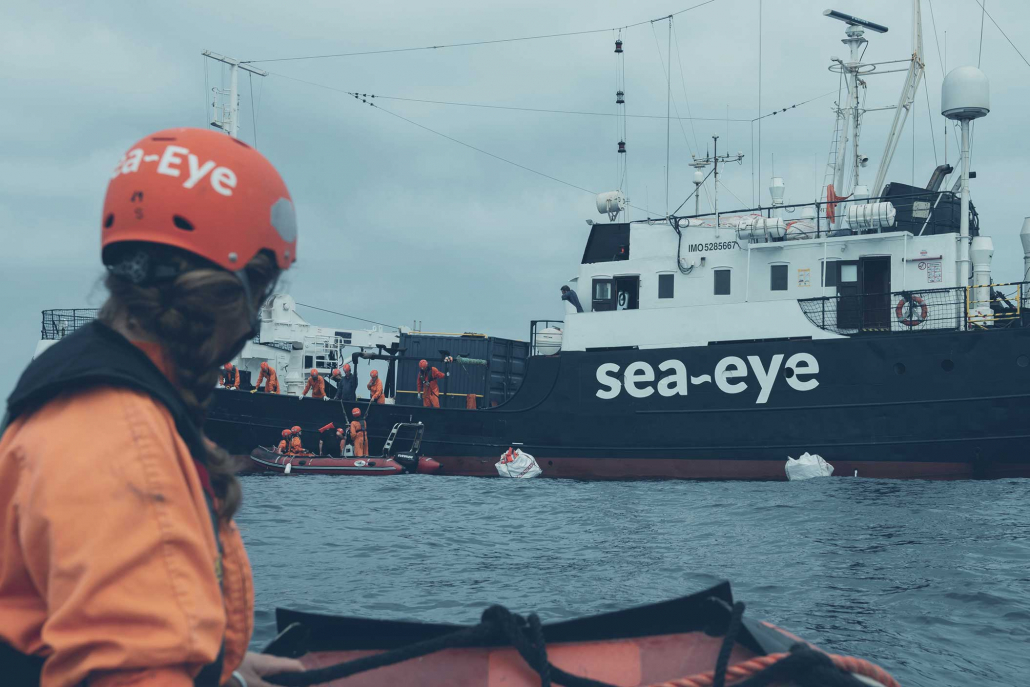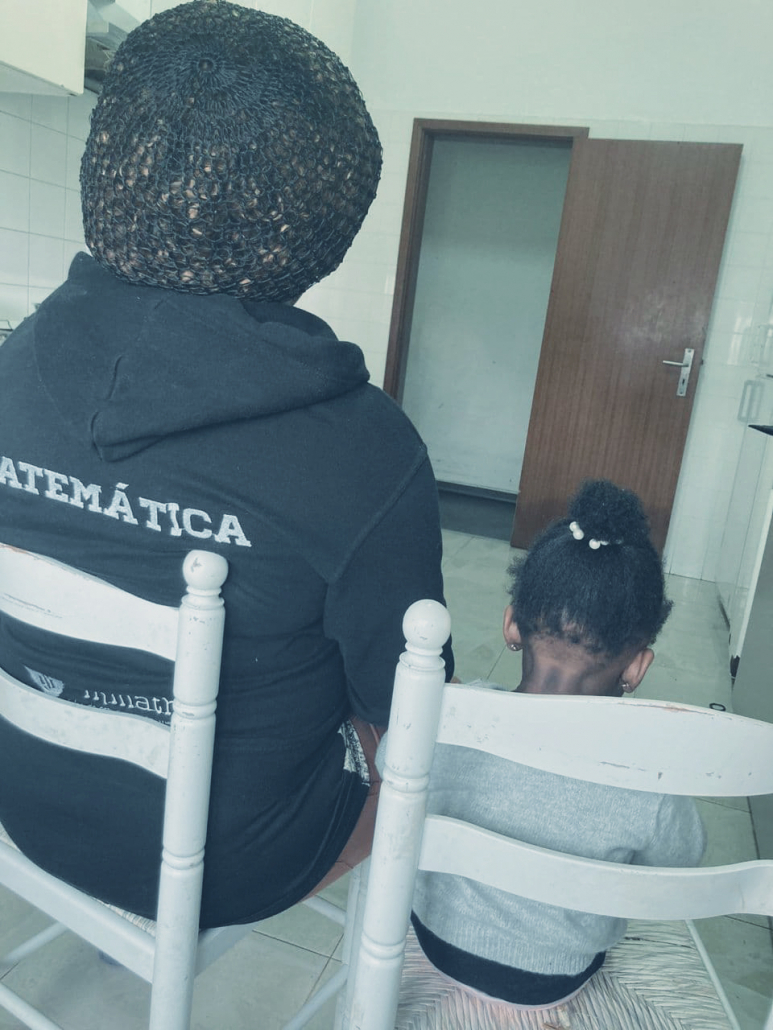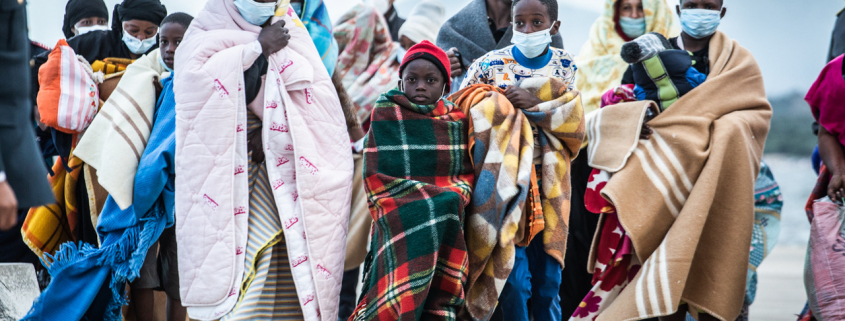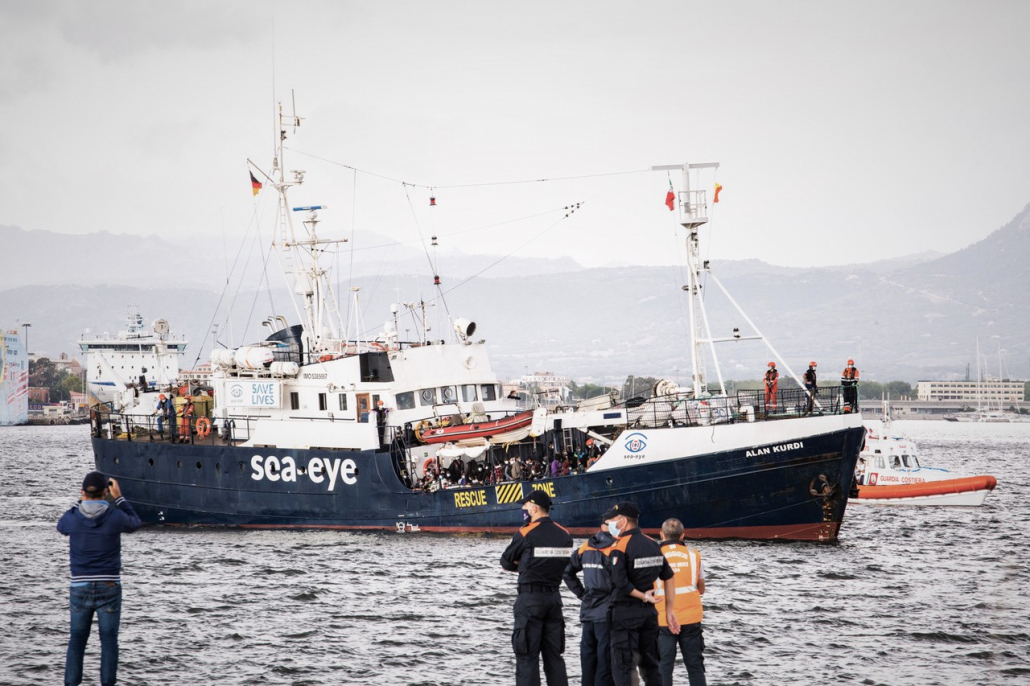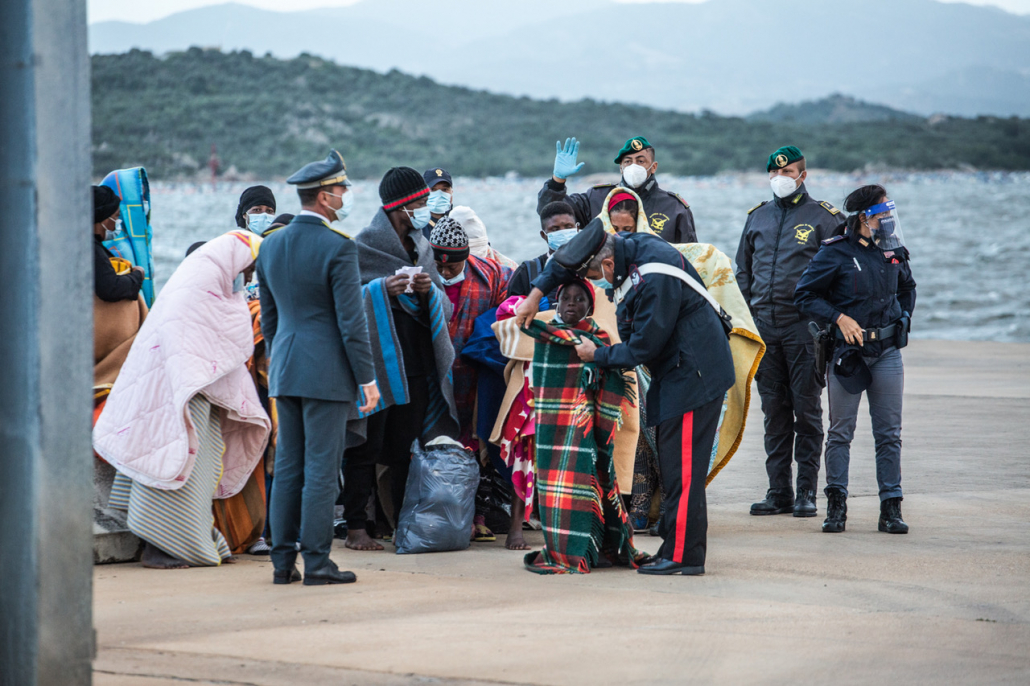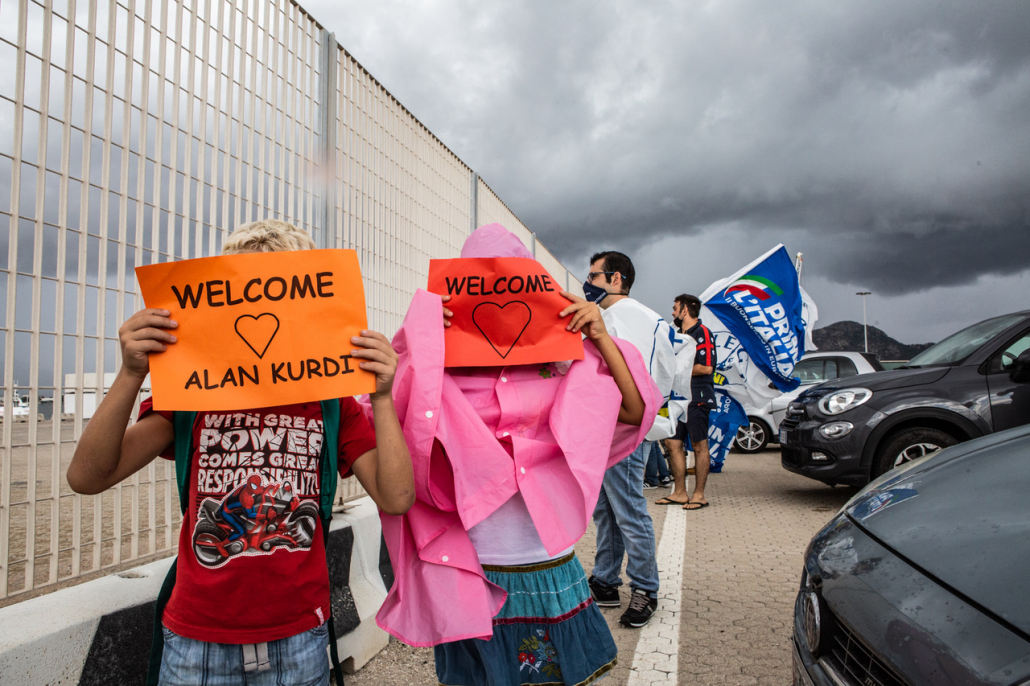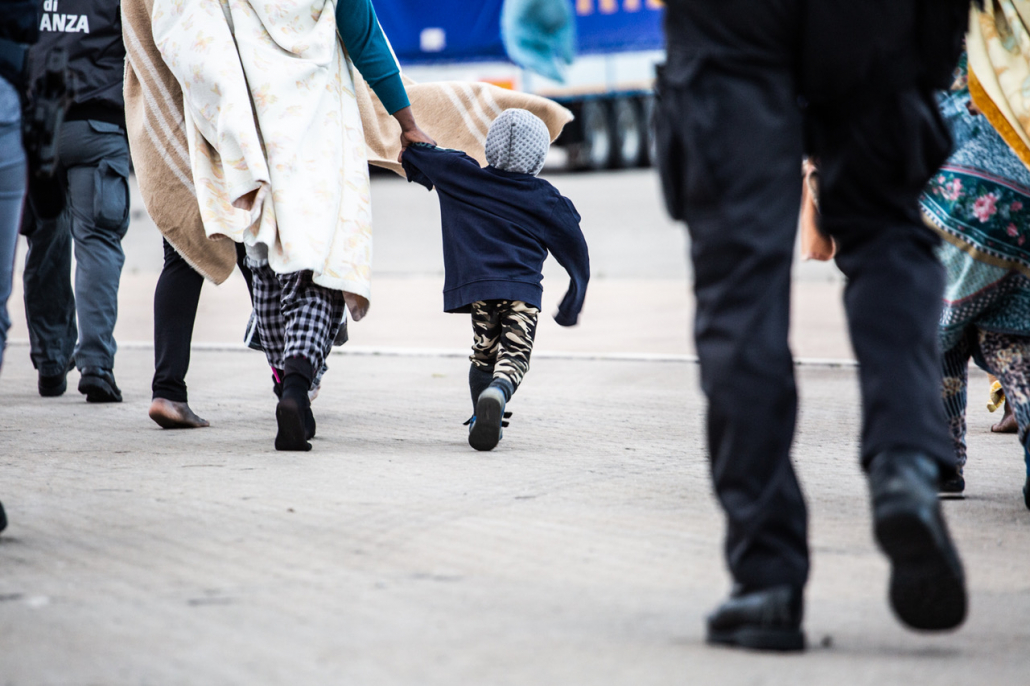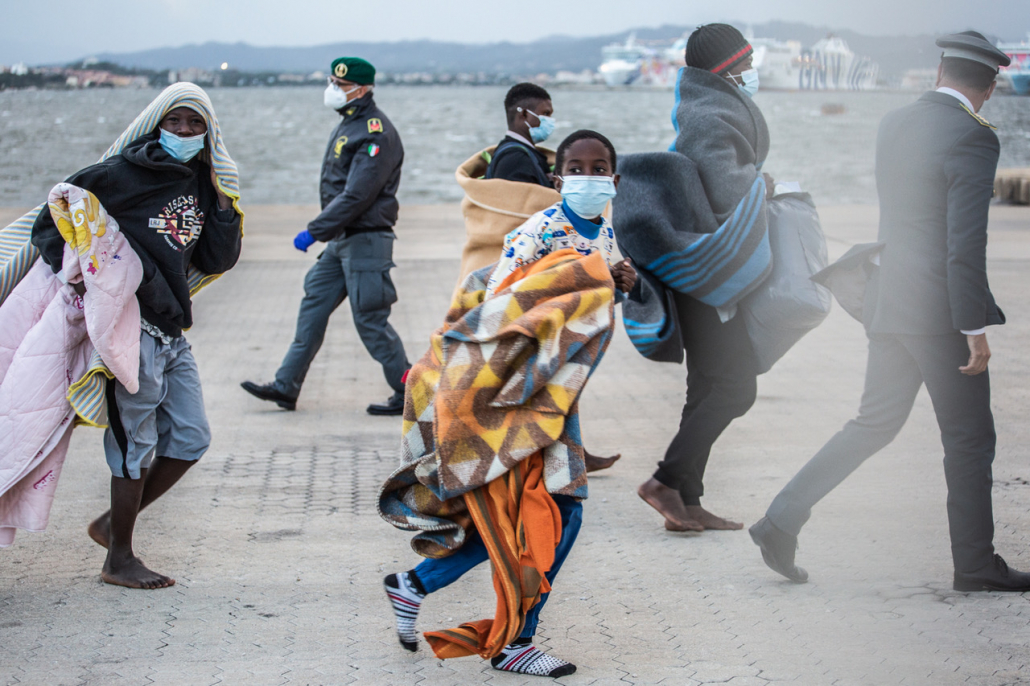We talk a lot about refugees. Rarely do we talk to and with them.
A commentary by Sophie Weidenhiller, spokeswoman of Sea-Eye e. V.
Whenever I write texts like this one, it is because I have a strong emotional reaction to something I experience. This time, like many times before, my public plea comes from talking to a young Syrian refugee, who I have met aboard a Sea-Eye ship. Let’s call him Adil*. When we talk, I get to see a different world, a different side of the same world actually. I have an EU passport, he does not and he probably never will. Adil has experienced trauma, like I never have and probably never will. We get along well though. We don’t even speak the same language and Google-translate is our best buddy, who makes me laugh often at the irony of situational humor due to using such apps.
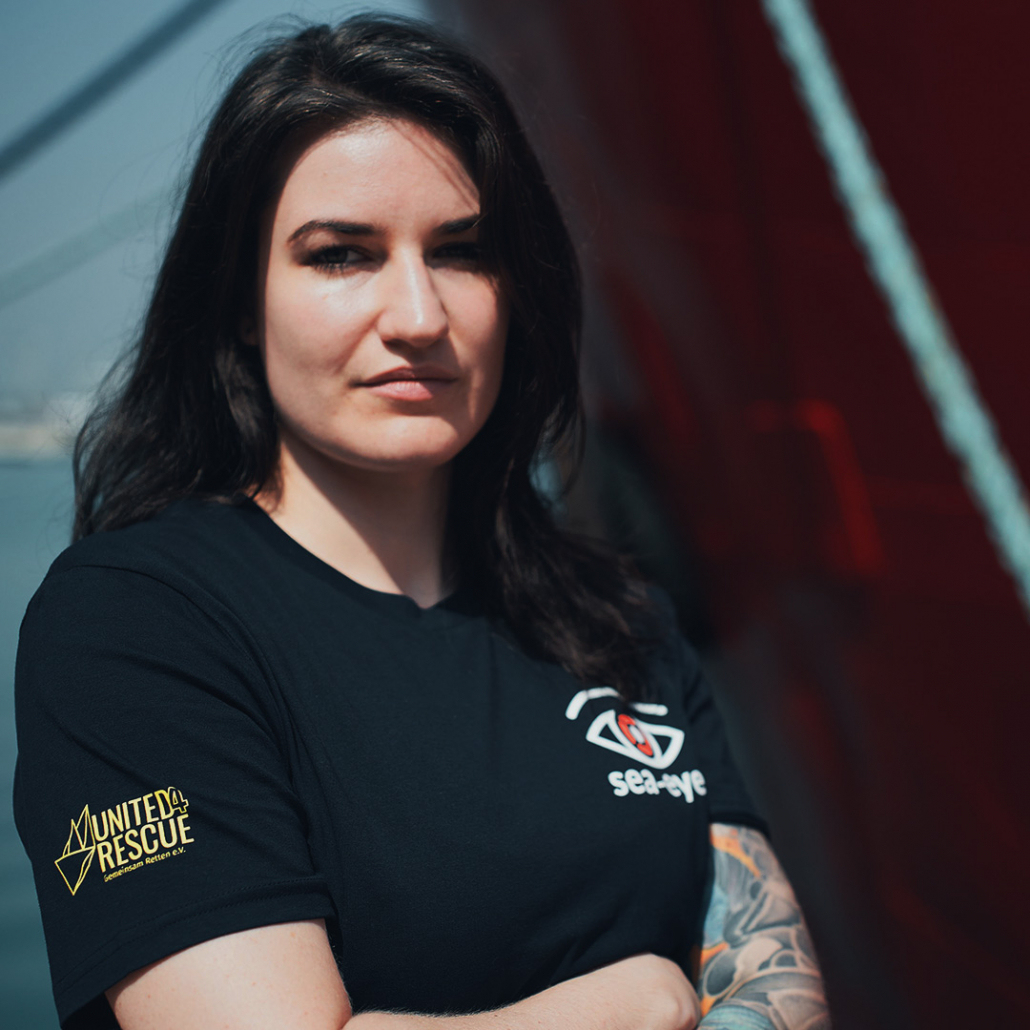
Adil is funny too, he showed me some of the music he likes to listen to, he likes to cook milk-rice for everyone and he would like to cook for me too. He is smart, he wanted to study at a university in Syria, but then the war made that impossible. When I told him I am sorry that he couldn’t study, like I did, he said: “Don’t be – it’s OK because no one can study there anymore”. For him, I shouldn’t be sorry just for him, because his whole country is suffering.
I cannot tell you how many times I was left speechless and in awe of the different perspectives and ideas I got and how much I have learned from talking to various refugees I have met over the years. It’s astounding how little and yet how very much we have in common. How we can laugh together without speaking the same tongue, how we can understand each other, even without words, and how hugs can feel so very comforting, even between complete strangers. And yes, I still judge and I have my prejudices about some people, as with all people. But I have noticed that whenever I sit down with someone and I just listen to their incredibly honest stories and views, it is usually quite enlightening. And it also shows me my own shortcomings, as well as the ones of European policy-makers.
From a eurocentric and privileged point of view, some of our strategies might seem like they make sense when in reality, they are not only incredibly unethical but also completely ineffective.
I am more specifically talking about the politics of deterrence and warding the EU off, the attempt at closing our borders and trying to deter people from fleeing by way of making flight seem dangerous and potentially lethal. We think by creating barbed wire fences, high walls, push-back agencies, surveillance, and use of excessive force, we could prevent people from leaving for European shores and grounds. Nothing could be farther from the truth. This utterly unethical practice is not working. Here’s why:
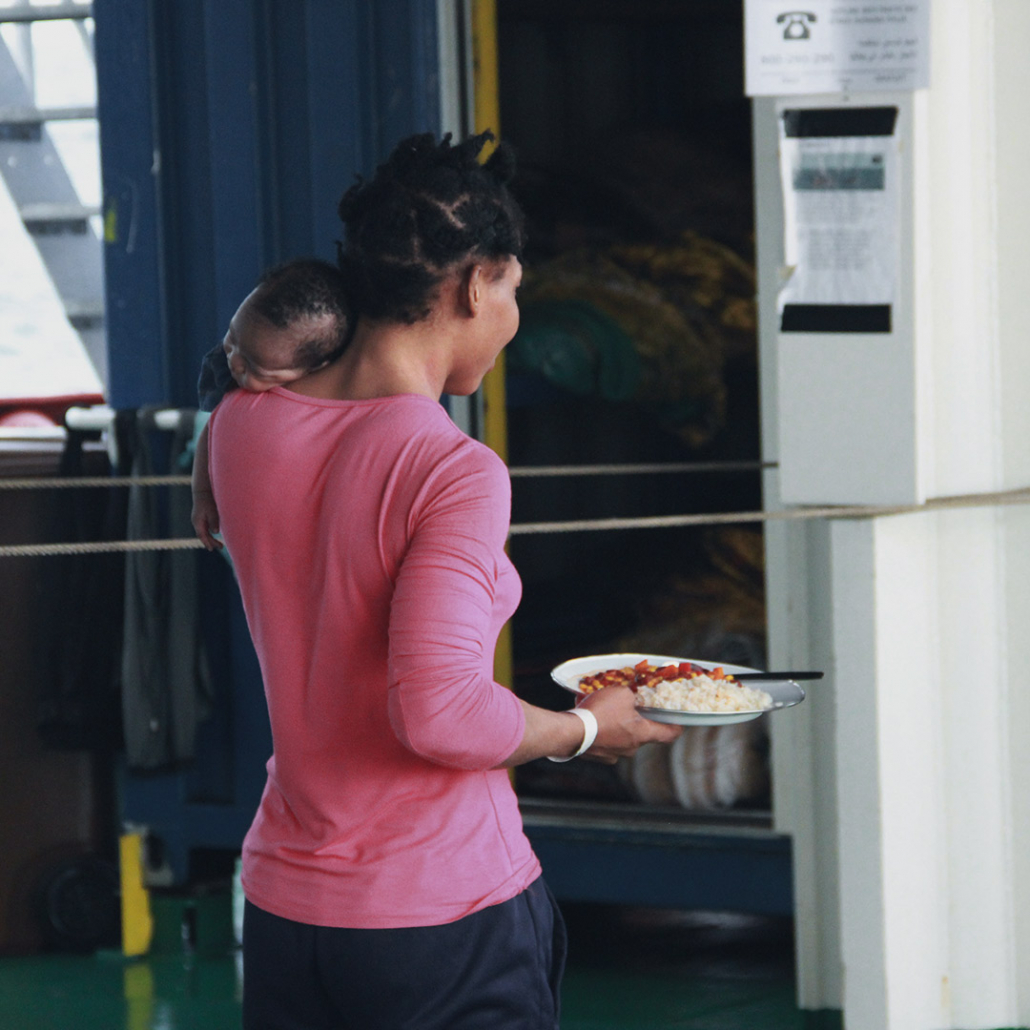
Europe tries to warn people and stop them from leaving for Europe by showing them if you try to get here, you could end up at the bottom of the ocean, shot dead in the sand, or frozen to death in a forest.
But have we ever asked how people who are on the move or plan to flee perceive such threats? Do you know what their answer is to this cruel warning? I can tell you what I’ve heard time and time again as a response to this:
“I know I could die, but I’d rather die en route to freedom than continue suffering where I am.”
Another version of the same attitude, that was told to me was:
“There is no life here – even death is better than this hell.”
As a person with a psychotherapeutic background, I must say these attitudes and acts of flight almost carry an air of “para- or quasi-suicidal” acts. That means that the people who attempt to flee, knowing full well that there’s a great risk for the loss of their own life, are so desperate that they consciously, albeit in acute and severe distress, choose that risk. For some of them, tragically, death on the way seems almost like a kind of salvation because it would mean an end to their perpetual suffering, which most of them have endured for years and that they could maybe meet some of the loved ones that they’ve lost in the afterlife. Of course these people do not actually want to die, but if the only choice that they’re left with is death or suffering – they make the only choice available to them.
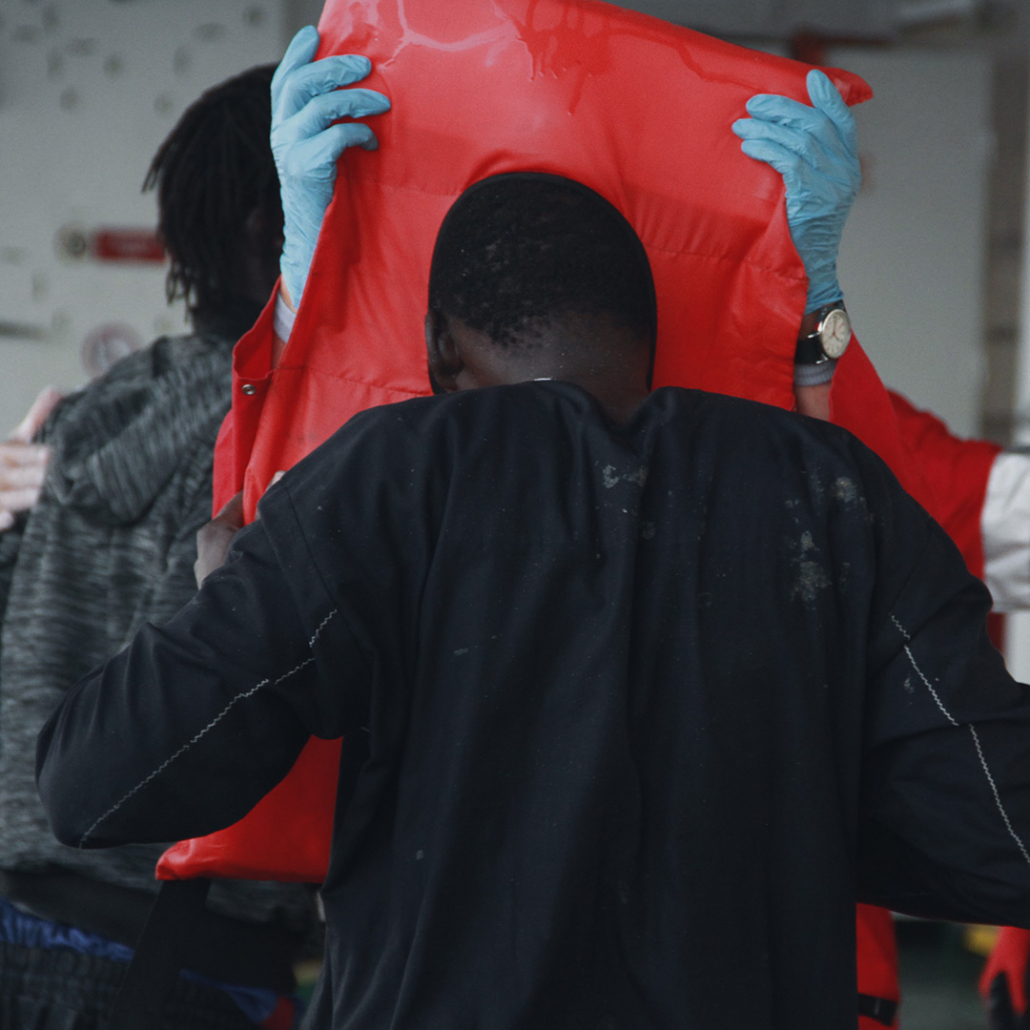
Another aspect I have heard is that some persons state they feel like “my soul has already died long ago, I do not fear death anymore, because I already feel dead inside”. Or like Adil put it “The last thing I fear is death. (…) I wish I could die when I pray.” He also added: “If you want to understand my words look at the videos of Muslim mothers and fathers in Syria, whose entire family was murdered in front of their eyes, and she [the mother] thanks God and cries and says she will return to them.”
This is one of the key psychological reasons why people will not be stopped by politics of deterrence. The desperation refugees face today is so substantial, so all-encompassing, so unfathomable for all of us who live here in Europe and carry EU passports. We cannot begin to imagine the horrors these persons have faced and so we belittle their experiences by taking their hope and their choices from them, leaving them with rejection and death, as the only options. If we want to handle migration well, we first need to understand what people actually go through and how they think and feel, which requires us to talk to them and listen, and – as sad as it is that this has to be mentioned – to treat them like actual human beings, and not just an ever-increasing number of collateral damage, measured in human remains.
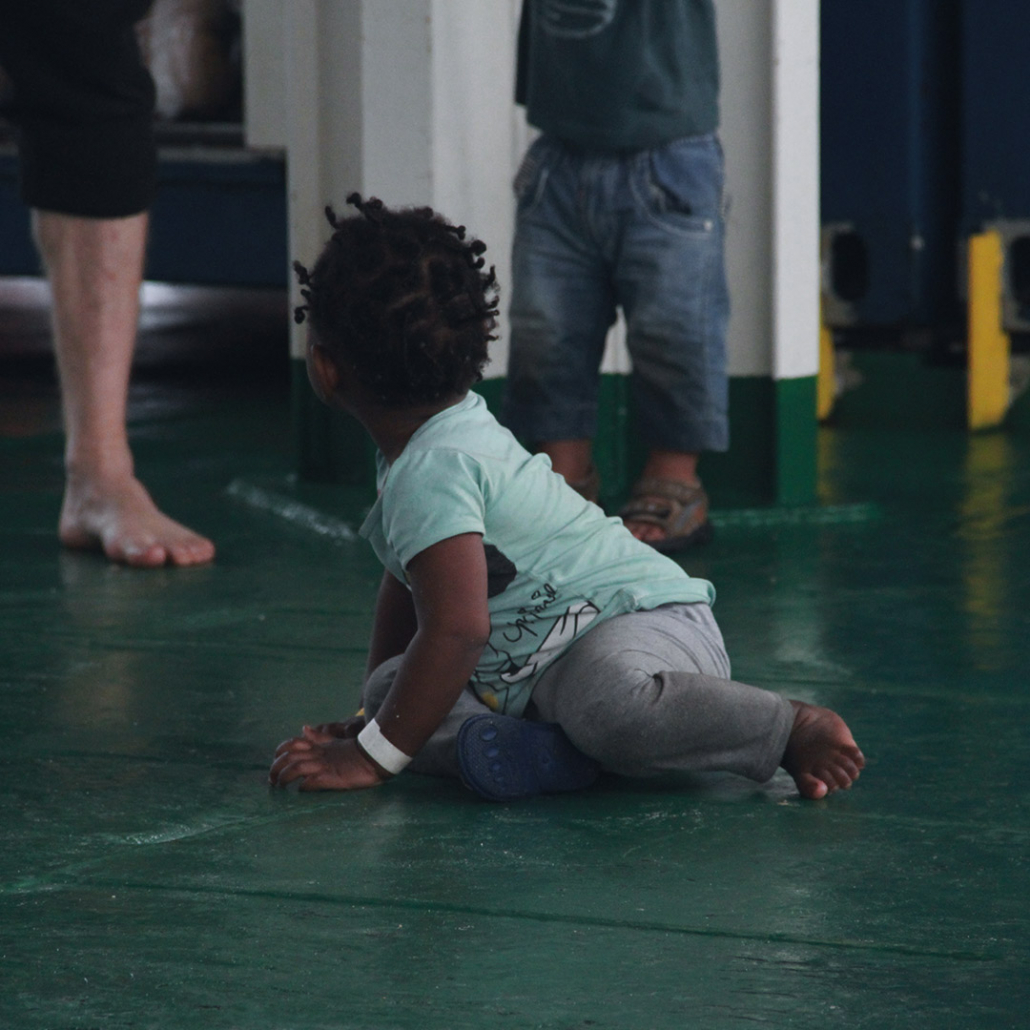
This is the state of things for refugees today from what I gathered from many conversations with people who had to flee – and it is deeply disturbing. I therefore urge the European politicians to end their unethical policies, because again – not only are they inhumane, they also do not work. What they do is create mass graves, waves of desperation leading to suicide, and generations of traumatized survivors. If we want to solve this problem, we need to give people hope and assistance, instead of additional trauma and hurdles.
How many more deaths will it take for European politicians to finally stop this madness? This system is not working, and it is killing people by the thousands. We need to stop neglecting the realities of people who are fleeing and we must stop the dying, immediately!
* To protect his privacy
